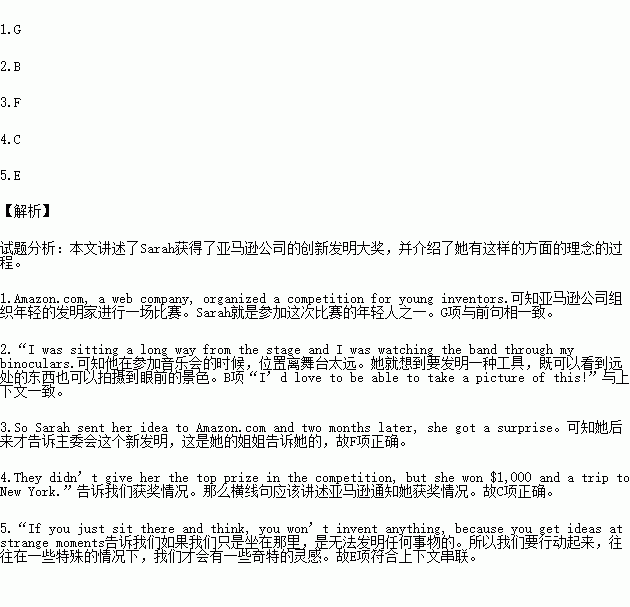题目内容
Sarah Hutchins has won a prize from Amazon.com in a competition for young inventors. She invented “camoculars”! Now what are “camoculars”? Camoculars are binoculars(双筒望远镜) and a camera combined. Amazon.com, a web company, organized a competition for young inventors. 1.
Sarah was at a concert when she thought of her invention. “I was sitting a long way from the stage and I was watching the band through my binoculars. While I was watching, I thought,‘ 2. ’Then I got an idea. Why not have binoculars with a camera inside them?”
When she got home, she took some plastic binoculars and a cheap camera and put them together. 3. So Sarah sent her idea to Amazon.com and two months later, she got a surprise. 4. They didn’t give her the top prize in the competition, but she won $1,000 and a trip to New York.
People are already asking Sarah what she is going to invent next. “I don’t know,” says Sarah. “If you just sit there and think, you won’t invent anything, because you get ideas at strange moments. 5. ”
A. Sarah likes music very much.
B. I’d love to be able to take a picture of this!
C. Amazon.com phoned to say that she was a winner.
D. I have always dreamed of travelling around New York.
E. The only thing you can do is keep your eyes and ears open!
F. Her sister was watching her and told her about the competition.
G. Sarah was one of thousands of young people who took part in this competition.

